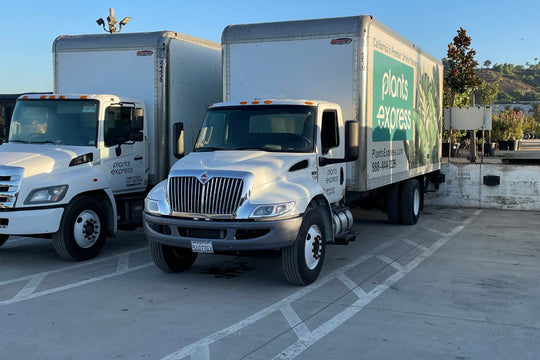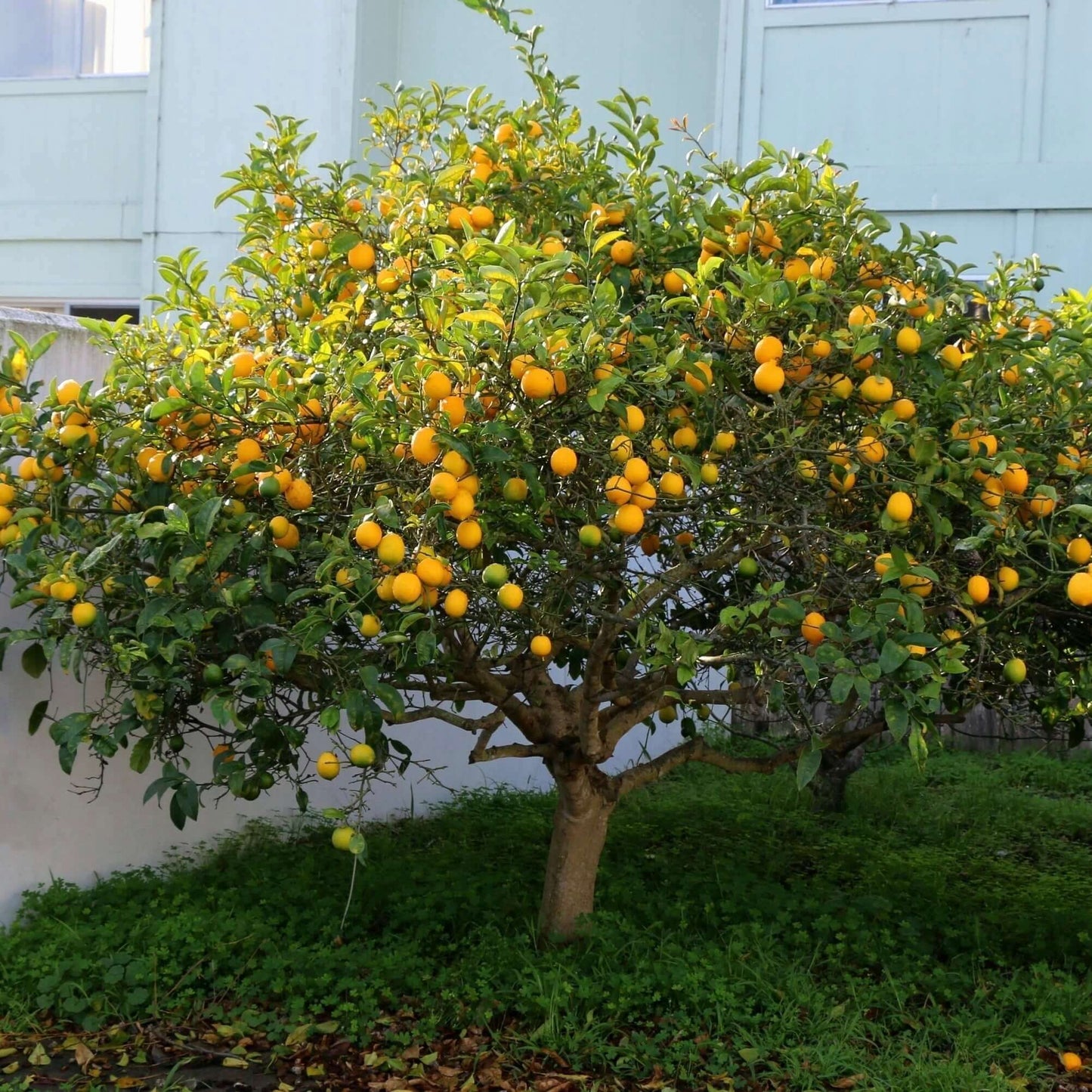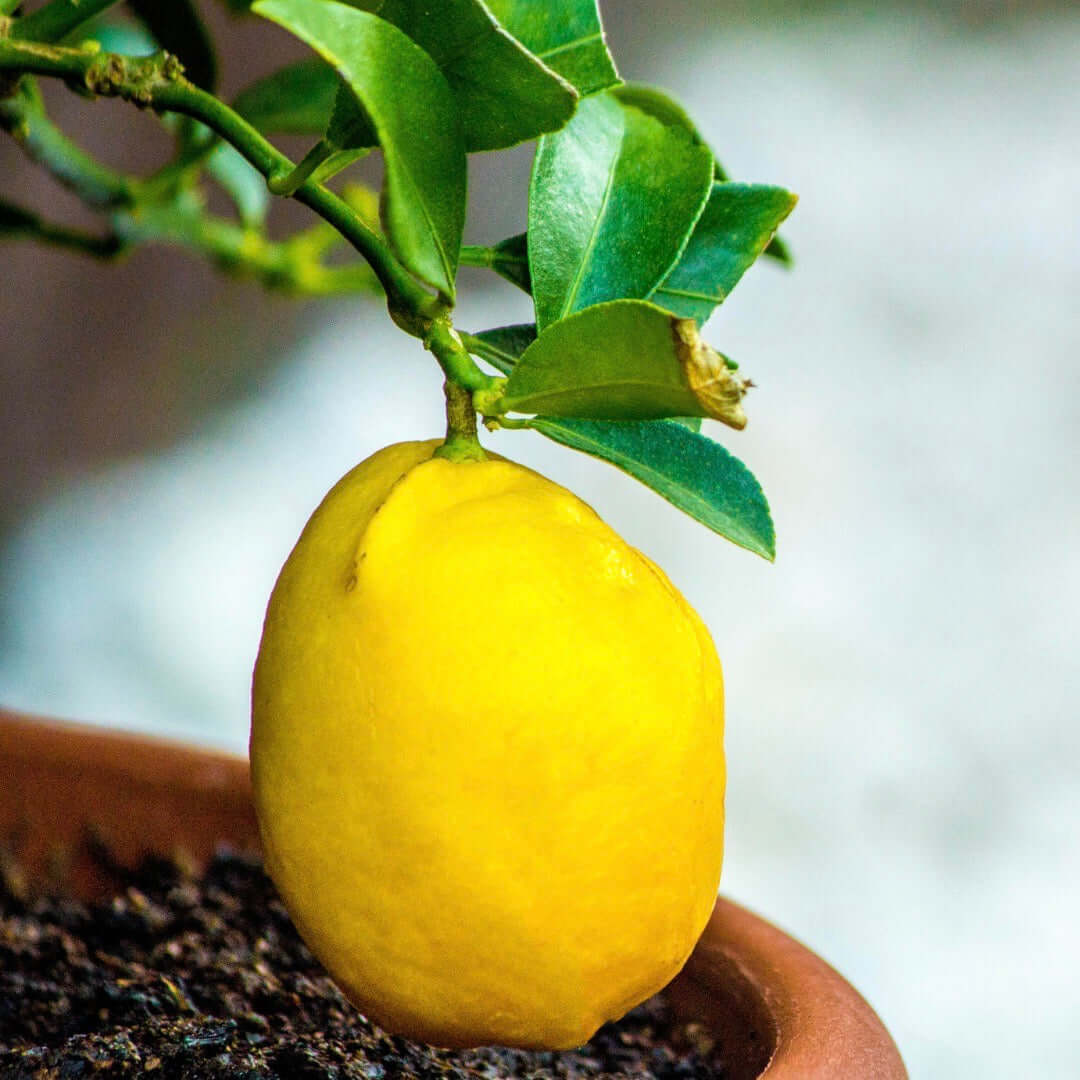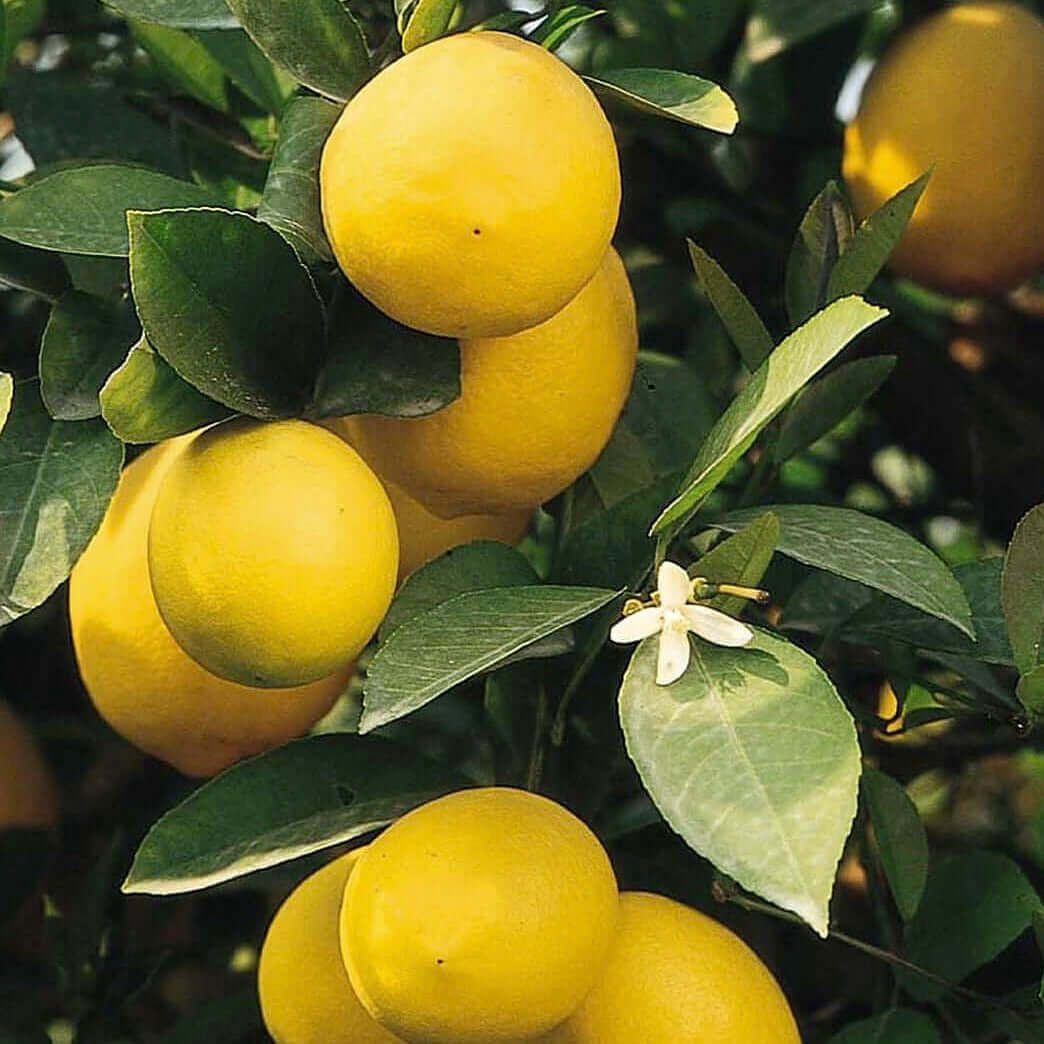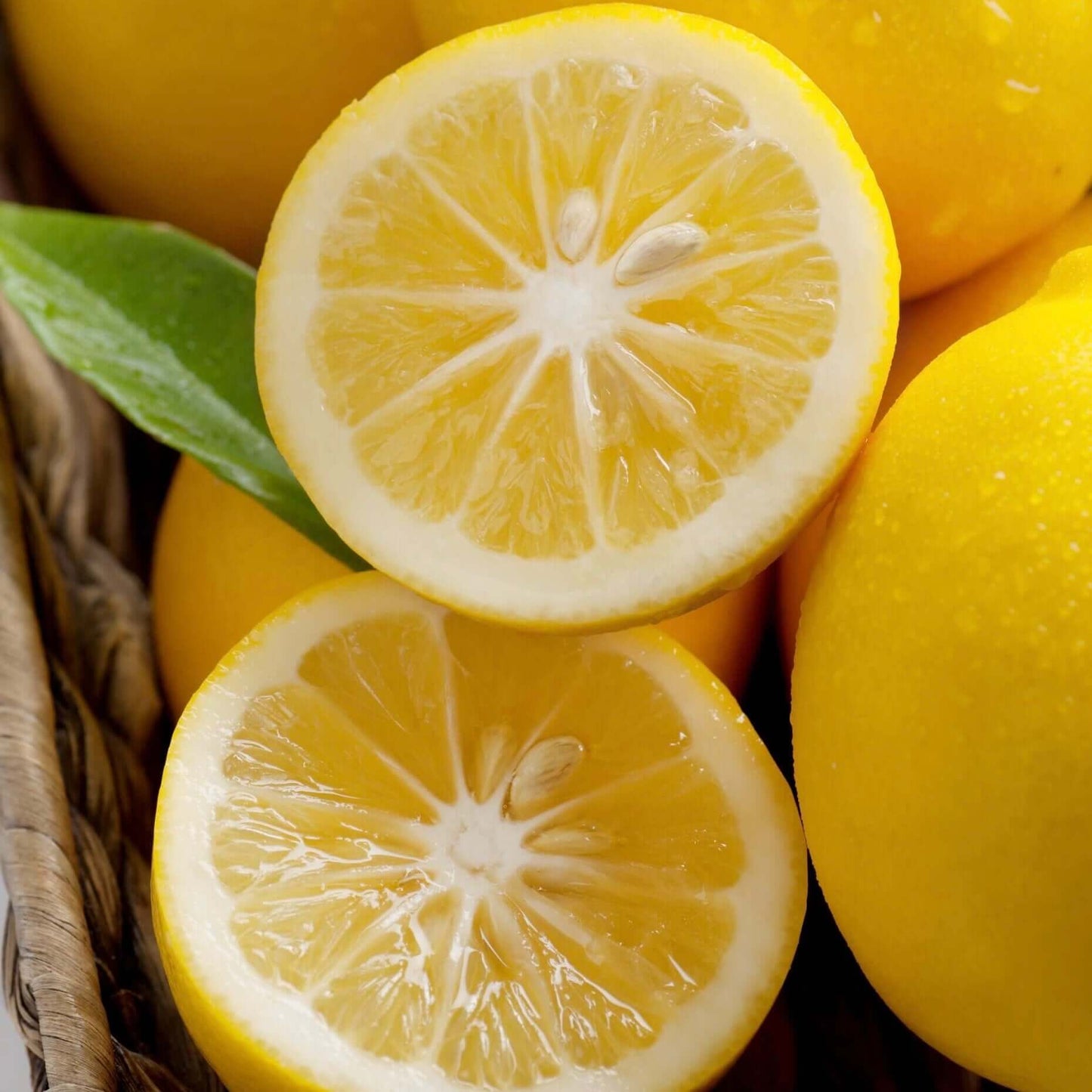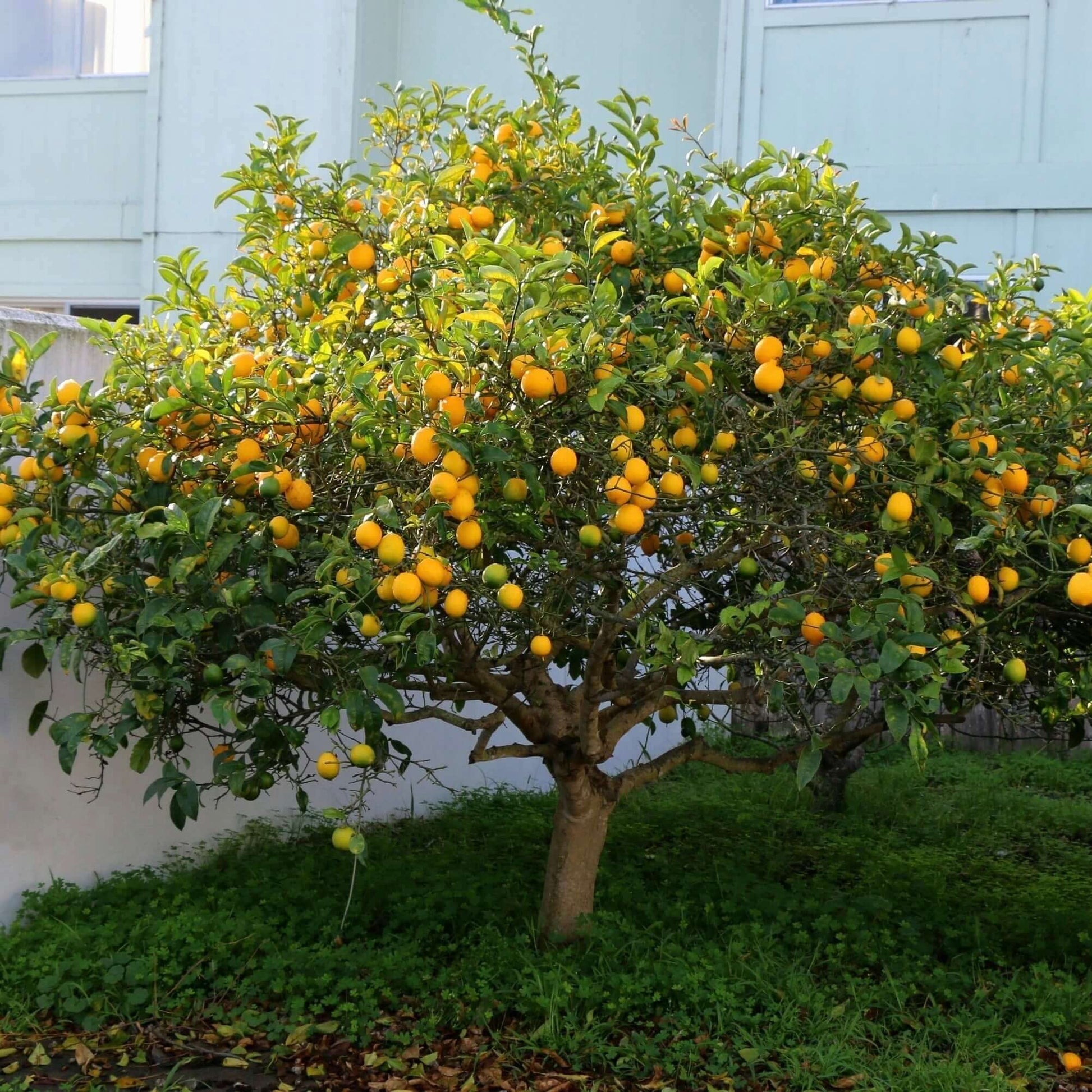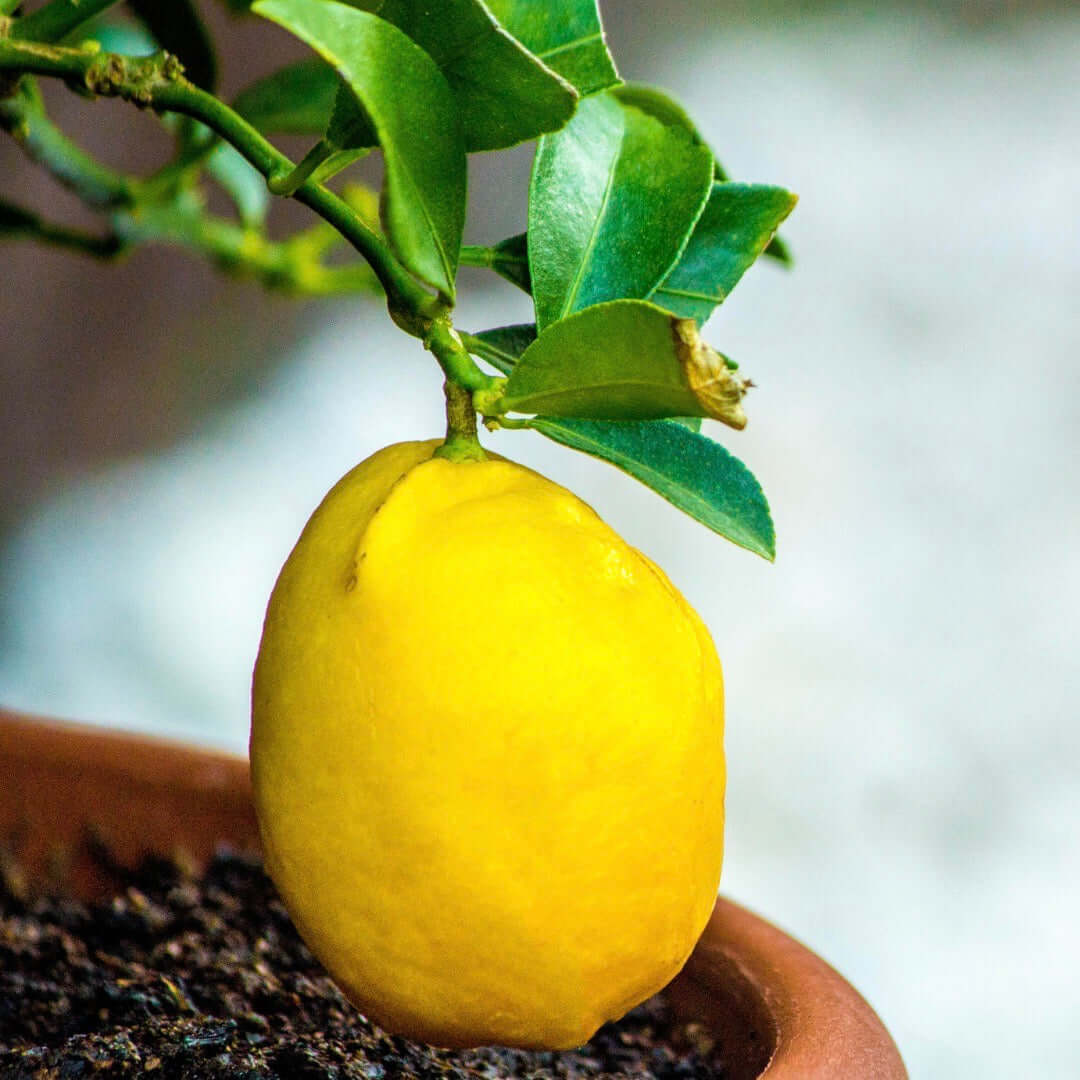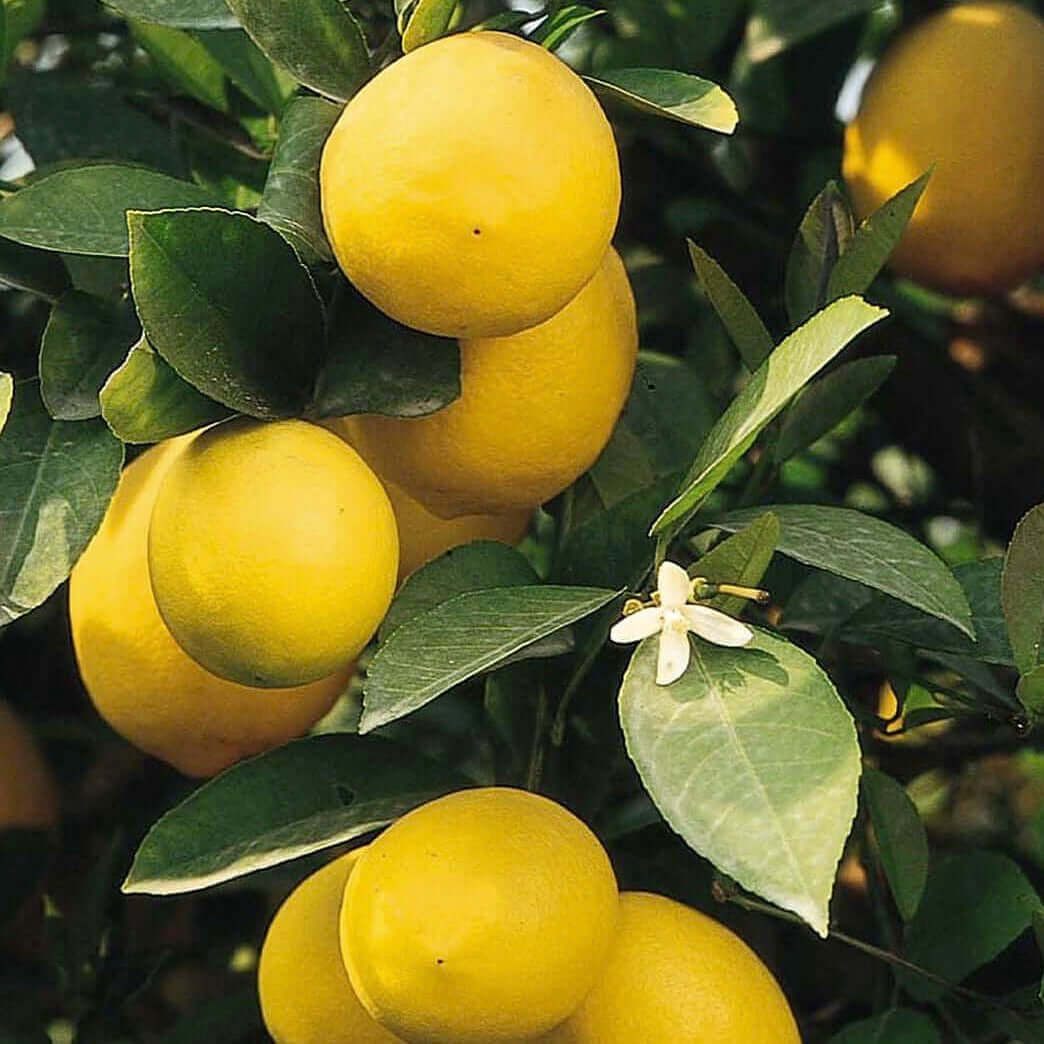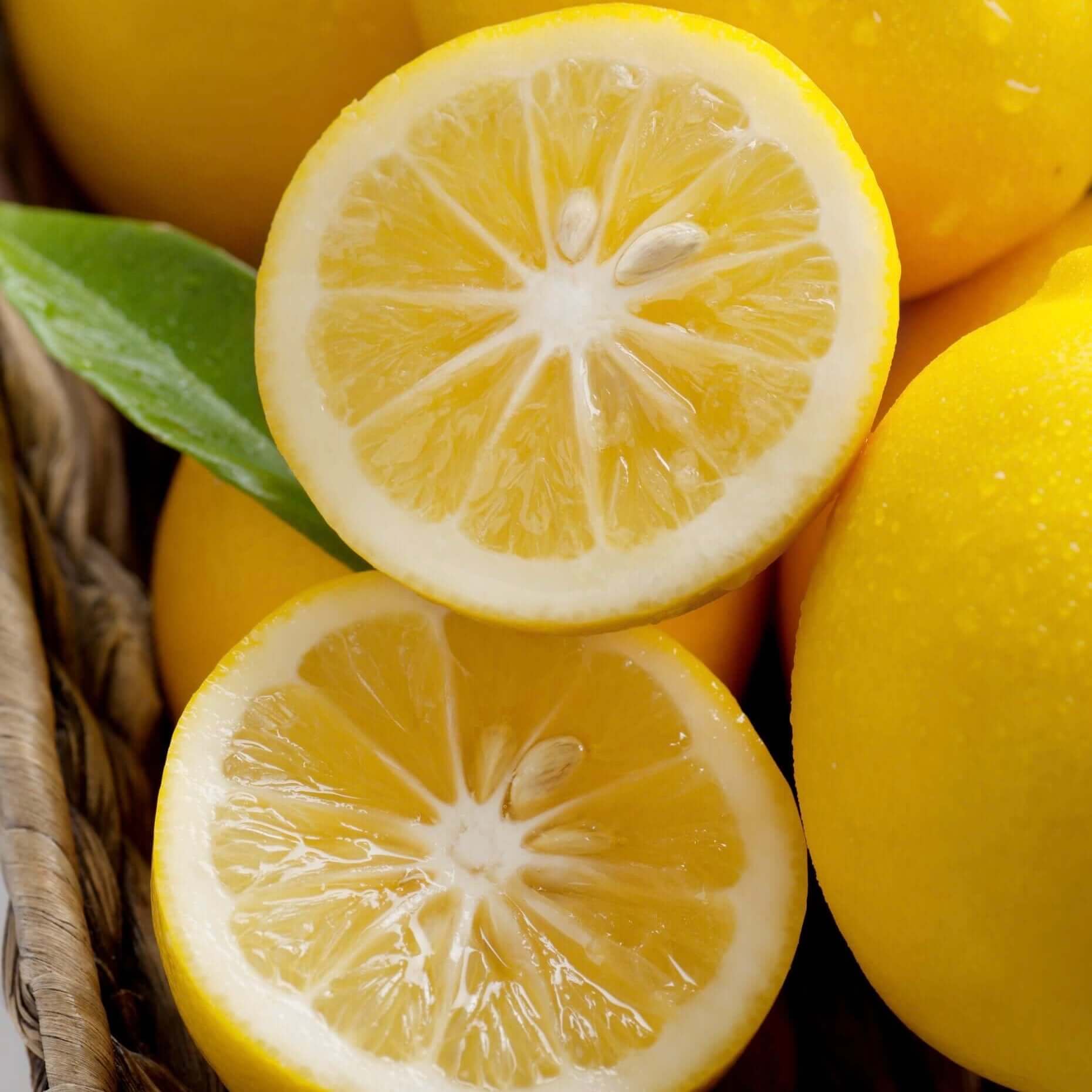



Orders over $399 are delivered for free! All others have a flat rate delivery fee of $40.
Meyer Lemon Tree
Meyer Lemon Tree
Citrus × meyeri 'Improved'
24-hour money-back guarantee
Free delivery on orders over $399
In Stock
Couldn't load pickup availability
The Improved Meyer Lemon Tree is a must have for anyone who is interested in having a touch of flavor in your California garden. Meyer Lemon is a hybrid between a sour lemon and a sweet orange. The flavor is truly unique, and the fruit is incredibly juicy. The everbearing tree can produce an abundance of fragrant lemons perfect for culinary creations.
Simply said, the Meyer lemons taste sweeter than regular lemons. Meyer lemons have less acidity, a complex flavoring, and a thin, smooth yellow skin that is perfectly suited as a garnish in your beverage but not for zesting. As the fruit matures on the tree, the skin darkens to an orangish-yellow color and becomes more sweet. The fruit of the Meyer Lemon is less tart and juicier than the Eureka lemon.
In California's mild climate, a Meyer Lemon tree is an excellent choice as an evergreen landscape tree with glossy, green leaves and the bonus of flavorful fruit and fragrant, star-shaped white flowers that can stir the senses when the lovely citrus fragrance is released into the air. The Improved Meyer Lemon tree is smaller than the Eureka lemon tree, and is easy to grow and maintain with minimal effort.
Planted in a container, the Meyer Lemon tree will be smaller, making this the ideal lemon for patios or indoors, and the perfect gift that keeps giving. Add a Meyer Lemon Tree to your home or garden and enjoy everything this amazing citrus tree has to offer. Read How to Properly Plant a Lemon Tree.
Semi-Dwarf vs. Standard citrus trees:
The difference between a semi-dwarf tree and a standard tree is the mature height. Semi-dwarf citrus trees are smaller and grow to approximately two-thirds the size of a standard tree form. Depending on the position of the lower branches on the trunk, a semi-dwarf citrus can look like a bush with a short trunk, or a tree with a trunk.
The mature height of a Meyer Lemon tree based on average growing conditions:
Semi-Dwarf tree: 8-12 ft. tall.
Standard tree: 10-15 ft. tall.
In containers, the Meyer Lemon tree will be smaller and can easily be pruned to maintain a desired size.
The mature height and fruit production of your citrus tree will depend on several environmental factors such as climate, light, soil type, texture, fertility and moisture, and pruning practices. Your citrus tree can easily be maintained at a smaller size with annual pruning.
Planting a Meyer lemon tree (Citrus × meyeri) can be a rewarding experience, as it produces delicious, sweet lemons and fragrant blossoms. Here’s a step-by-step guide to help you successfully plant and care for your Meyer lemon tree:
Choosing the Right Location
- Sunlight: Meyer lemon trees thrive in full sun, so select a location that receives at least 6 to 8 hours of direct sunlight each day.
- Space: Ensure there's enough space for the tree to grow; aim for about 8 to 10 feet of clearance around it.
Soil Preparation
- Soil Type: Meyer lemons prefer well-draining soil. A sandy loam or potting mix designed for citrus trees works well.
- pH Level: Aim for a soil pH between 6.0 and 7.0 for optimal growth.
Planting the Tree
- Timing: The best time to plant is in the spring or fall when temperatures are milder.
- Digging the Hole: Dig a hole that is about twice the width of the root ball and the same depth. This will provide enough room for the roots to spread.
- Amending the Soil: If the soil is heavy clay, consider mixing in some organic matter (like compost) to improve drainage.
Planting Steps
- Remove the Tree from the Pot: Carefully take the Meyer lemon tree out of its container, trying not to damage the roots.
- Loosen Roots: If the roots are circling the root ball, gently loosen them to encourage them to grow outward.
- Place the Tree: Position the tree in the center of the hole, ensuring that the top of the root ball is level with the surrounding soil.
- Backfill the Hole: Fill in the hole with soil, gently packing it down to eliminate air pockets. Water the soil as you backfill to help settle it.
Watering
- Initial Watering: Water the tree deeply after planting to help it establish.
- Ongoing Watering: Keep the soil consistently moist but not soggy. Water regularly during the first year, especially in dry periods. As the tree matures, it will become more drought-tolerant.
The Improved Meyer Lemon Tree is easy to grow in the garden, patio, balcony, or even indoors as long as it has direct sun, moist and aerated soil. With proper care, Meyer Lemon trees can produce blooms and fruit continuously throughout the year. Meyer lemons can take up to six months to ripen before harvesting.
Semi-Dwarf vs. Standard citrus trees:
Semi-dwarf citrus trees grow to approximately two-thirds the size of a standard tree form. Depending on the position of the lower branches on the trunk, a semi-dwarf citrus can look like a bush with a short trunk, or a tree with a trunk that is shorter than the Standard tree form. The Improved Meyer Lemon tree is slow growing and its mature size can be easily managed with sensible pruning.
In the ground, the average mature height of a Meyer Semi-Dwarf tree is 8-12 ft. tall. The average height of a Meyer Standard tree form is 10-15 ft. tall.
The mature height and fruit production of your Meyer Lemon Tree depend on several environmental factors such as soil fertility, moisture, climate, and pruning technique.
CARE FOR OUTDOOR CITRUS, IN GROUND:
For outdoors, plant your Meyer Lemon tree in a location that is wind-free, frost-free, and will receive at least 8 hours of full sun in a well draining soil that is porous and aerated. Adding soil amendments like Kellogg Palm, Cactus, & Citrus Mix will provide the right balance between moisture retention and drainage. Fast drainage for citrus plants is essential.
Cold hardy to 32℉, the Improved Meyer tree may be able to survive temperatures lower than 32℉ but damage to the foliage, branches, flowers, and fruit is possible. Protect your citrus tree from frost or cold temperatures below 32℉ with the use of frost cloth when temperatures drop, or plant in a sheltered location close to a house or structure.
Water your Meyer Lemon tree regularly and consistently the first year to develop deep roots. As the roots become established in the ground you may reduce the frequency. Avoid shallow, frequent waterings and do not allow roots to sit in standing water. Citrus prefer deep watering less frequently. Several factors will determine how often to water such as temperature, soil porosity, wind, and tree size.
Fertilize in spring with Gardner & Bloome 8-4-2 Organic Citrus & Fruit Tree Fertilizer Be sure to follow the instructions on the packaging.
Mulching can help conserve ground moisture and help suppress weed growth. Apply a layer of mulch that is 2 or 3 inches deep on the surface. Keep mulch away from the base of the trunk (at least 6 inches) to avoid disease or rot. Do not allow the mulch to touch the trunk.
Pruning your Meyer Lemon tree in the late winter can improve air circulation and maintain the desired size and shape. Do not cut back more than one third of the tree in a single season. Over-pruning can expose the trunk to direct sun and cause a sunburn. Prune to remove any damaged, diseased, crossed branches, or branches growing towards the center of the tree. Meyer Lemon is a slow growing tree that can be easily managed with pruning.
Pruning the lower side branches along the trunk will result in the appearance of a taller trunk. All citrus trees are grafted and any new foliage growth that appears below the graft union (generally 4-8 inches from the soil surface) should be removed immediately with clean, sharp pruners. These vigorous branches or “suckers” are from the root stock and rob energy from the fruiting wood. To prevent damage or disease to your citrus tree, use pruners that are clean and sharp.
CARE FOR CONTAINER CITRUS:
In a container, a Meyer Lemon Tree will be smaller than a tree grown in the ground, but the fruit size will be the same, making this the ideal lemon for your patio, balcony, or indoors. A porous clay pot is best for container grown citrus as it allows air exchange and drainage, and helps maintain a healthy root system. Use a pot that is about twice the size of the root ball, or has 3-4 inches of space around the root ball. Use a soil mix that is designed for citrus. Drainage holes are important if the pot is not porous. Water your container-grown citrus more frequently than in-ground citrus but do not allow the roots to sit in standing water. Be sure to protect your potted Meyer Lemon from frost by moving it to warmer, sheltered areas, or use a frost cloth if the cold period is brief. Feed your outdoor container grown citrus in late winter and again in June.
CARE FOR INDOOR CITRUS:
The Improved Meyer Lemon tree is the most popular citrus for indoor growing. If you grow a Meyer Lemon tree as a houseplant, be sure to provide optimum growing conditions such as 8 hours of direct sunlight in a south facing window or use full spectrum grow lights for supplemental lighting. Flower and fruit development are dependent on sufficient light and heat.
Keep your indoor Meyer Lemon plant away from heat sources like stoves, fireplaces, or vents which can lead to low humidity. Use a humidifier to increase indoor humidity if it is too dry. Your home’s temperature will be more moderate than the outside temperature and therefore your Meyer Lemon may use less water indoors. The Meyer lemon is self-pollinating and good air circulation is important for this process. Fertilize indoor-grown citrus quarterly (follow label instructions).
How we Deliver Plants
By using our own fleet of vans and trucks, we're able to control quality and deliver right to your door.
